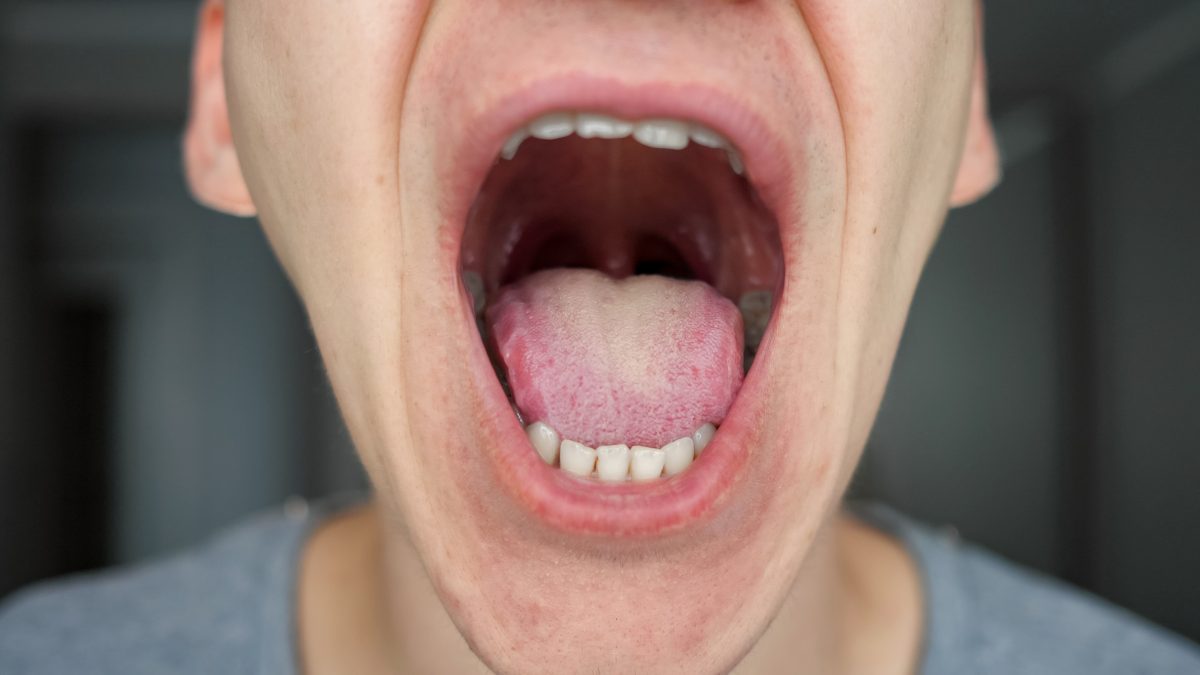We hear plenty about maintaining the balance of the gut microbiome and its strong connection to health in other parts of the body.
But your oral microbiome is the second largest microbiome in your body. And a growing body of evidence indicates a relationship between oral health and healthy aging, including whole-body health and longevity.
Both good and bad bacteria exist there too — and an imbalance there can quickly raise your odds of gum disease, also known as periodontitis.
Not only can periodontitis eat away at the jawbone and the soft tissues that surround teeth, it can cause other problems in the body, such as type 2 diabetes, rheumatoid arthritis, heart disease and cognitive issues.
Now it looks like these bad bacteria can increase a specific cancer risk…
Oral bacteria linked to head and neck cancers
Using lifestyle data gathered from three ongoing studies, researchers tracked 159,840 Americans, focusing on factors involved in cancer.
When each participant first enrolled, they provided saliva samples that preserved the number and species of bacteria in their oral microbiome, to be used in testing. Researchers then followed up for 10 to 15 years to identify and record any presence of tumors.
Investigators analyzed bacterial and fungal DNA from the saliva samples, then identified 236 patients who were diagnosed with head and neck squamous cell carcinoma (HNSCC), a group of cancers that includes the most common cancers of the mouth and throat.
They compared the DNA of the oral microbes of the HNSCC patients with 458 randomly selected cancer-free study participants — and their findings were stark…
Of the hundreds of different bacteria routinely found in the mouth, 13 species were shown to either raise or lower risk of HNSCC. And overall, the group with these species had a 30 percent greater chance of developing HNSCC. In combination with five other species often seen in gum disease, the overall risk was increased by 50 percent.
This isn’t the first time experts have observed a link between poor oral health and HNSCC. While small studies have tied some bacteria in the oral microbiome to these cancers, the exact bacterial types most involved have remained unclear.
“Our findings offer new insight into the relationship between the oral microbiome and head and neck cancers,” says study lead author Dr. Soyoung Kwak, a postdoctoral fellow in the Department of Population Health at NYU Grossman School of Medicine. “These bacteria may serve as biomarkers for experts to flag those at high risk.”
Reduce your risk (and not just with your toothbrush)
This latest report is the largest and most detailed analysis of its kind to date. But while the added risks from these bacteria are concerning, the researchers note that, overall, cases of head and neck cancer remain fairly uncommon.
Still, study co-senior author Dr. Richard Hayes says the results emphasize the importance of keeping up good oral hygiene habits. “Brushing your teeth and flossing may not only help prevent periodontal disease, but also may protect against head and neck cancer,” adds Hayes, a professor at NYU Grossman School of Medicine and a member of its Perlmutter Cancer Center.
We all know that drill: brush your teeth twice a day, floss once a day and visit the dentist for a thorough cleaning every six months. Skipping any of these steps even for one day is a recipe for gum disease and disruption of the oral microbiome.
But are there other actions you can take to combat the bad oral bacteria that can cause disease? Thankfully, the answer is yes.
- If you’re a smoker, quit (and definitely don’t use smokeless tobacco products).
- Keep your mouth moist by drinking plenty of water (and avoiding sugary drinks and alcohol).
- Take a dental probiotic (especially ones in a lozenge, drink, mouth rinse or chewable form).
Some dentists also suggest avoiding harsh toothpaste and antibacterial mouthwash, excess sugar and inflammatory foods, and recommend adding micorobe-promoting fermented foods to your diet.
Sources:
Bacteria involved in gum disease linked to increased risk of head and neck cancer — EurekAlert!
Oral Microbiome and Subsequent Risk of Head and Neck Squamous Cell Cancer — JAMA Oncology
A Healthy Oral Microbiome – The Key to Systemic Health— Fallbrook Medical Center
Read full article here


